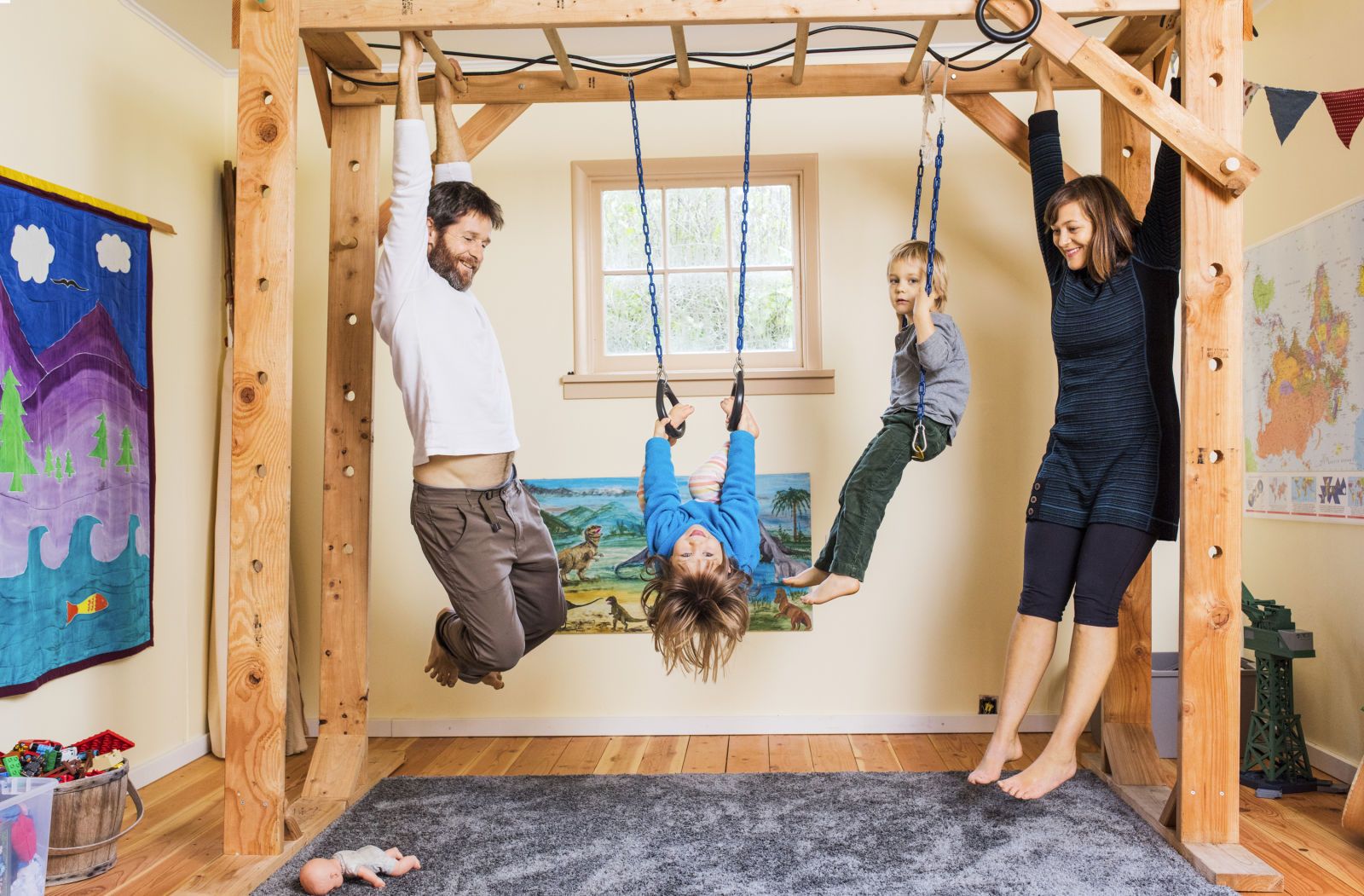The Monkey bars for kids ladder is a playground staple that improves upper body strength and coordination. They inspire children’s imagination and teach them to safely cross midline.
For preschool-aged children, the spacing between rungs should be 12 inches. This measurement strikes a balance between challenge and attainability. As children age the space between rungs should increase.
Strength and Endurance
Developing upper-body strength is one reason kids enjoy playing on monkey bars. The physical motions of swinging from one bar to the next and then lowering themselves back down after they’ve crossed the set engage more than just children’s upper bodies, though.
The balancing aspect of monkey bar play also works children’s core and lower body muscles, and when they practice on the equipment for long periods it helps improve their coordination. All of this exercise helps reduce stress.
Monkey bars also give children the chance to interact with their peers in a setting geared toward physical activity. They learn to build connections with kids they might not otherwise encounter in their daily lives, and the shared experience of working on the monkey bars can help them form friendships that last. They also get the opportunity to see the positive effect that kindness has on others. If a kid feels discouraged by not having the strength to make it across the equipment, they’re likely to try again if a friend encourages them and supports them.
Social Skills
Kids who play on monkey bars often make connections with other children. They may meet other youngsters who also enjoy swinging from the rungs and may develop friendships. This type of connection can help them feel less alone as they grow into teenagers and adults.
Managing personal disappointment is another important lesson for kids to learn on the monkey bars. For instance, if a child cannot get across the entire set without an adult’s help while their friends can do it without assistance, they might become frustrated or disappointed. However, if they keep trying and eventually make it over the monkey bars, they will experience a sense of triumph.
Monkey bars allow kids to improve both their gross and fine motor skills. Their arms will become stronger as they grasp and hold onto the rungs. Their core and legs will also strengthen as they swing their bodies back and forth on the rungs. The movement helps them improve their balance and coordination.
Patience
Children learn to wait for their turn on playground equipment like monkey bars. It’s not safe for multiple people to swing on the same set of bars at one time, so kids learn to share and respect others’ space and turn-taking abilities.
Monkey bar play also helps kids develop patience by allowing them to practice repeatedly attempting to conquer a challenging task. When they finally make it across the monkey bars, they experience a sense of exhilaration that comes from knowing they have mastered the challenge after many failed attempts. This lesson carries over into everyday life as kids realize that they must persist at tasks even when they are struggling to achieve success.
In addition to developing strength, endurance, and patience, children who play on monkey bars ladder for home improve their focus and cognitive functioning. They also become better at multitasking and concentrating, which can lead to increased academic performance.
Self-Confidence
Children who play on monkey bars develop a sense of pride in their accomplishments. They learn that they can do things that at first seemed daunting and impossible. This helps them develop confidence that will aid them in other aspects of their lives.
Monkey bar activities also strengthen kids’ arms, legs, back, and chest muscles. In addition, swinging from bar to bar and hanging from the rungs increases their proprioceptive sense, helping them become more aware of their body’s movements.
Playing on the monkey bars can also teach kids the benefits of encouraging one another. For example, if a child lacks the strength to make it across the monkey bars, they may be more likely to try again if a sibling encourages them and helps them hold on. This teaches kids how kindness can help them achieve their goals. Additionally, it helps them recognize that the key to success often lies in perseverance. Having a strong sense of self-confidence can help kids feel less anxious, be more motivated, and have better relationships.

